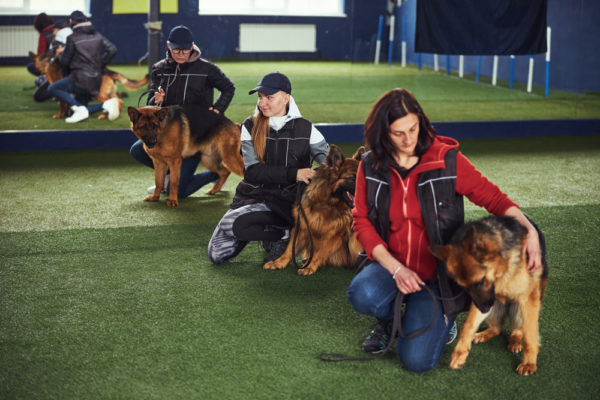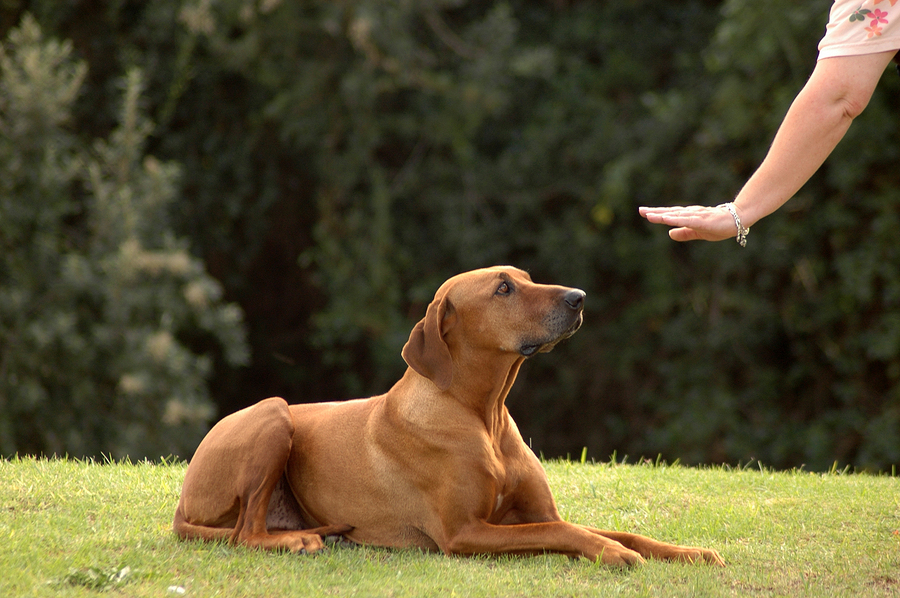Discover Effective Dog Training For Dogs to Boost Socialization and Obedience
Discover Effective Dog Training For Dogs to Boost Socialization and Obedience
Blog Article
Leading Dog Educating Strategies for Every Stage of Your Pet's Life
Effective canine training is vital at every stage of a pet dog's life, as each stage provides special difficulties and chances for development. It is crucial to acknowledge that training must progress together with a canine's development, guaranteeing that methods remain pertinent and reliable.
Pup Training Fundamentals
Puppy training basics lay the groundwork for a well-behaved adult pet dog and involve a number of essential components that need to not be ignored. The initial stage of training concentrates on developing a solid bond between the puppy and its proprietor, which is critical for efficient communication. Socializing is critical; exposing pups to different environments, individuals, and various other animals aids them establish confidence and flexibility, decreasing the chance of behavior issues later on in life.
Basic commands, such as rest, stay, and come, create the foundation of obedience training. Making use of positive support methods, such as deals with and praise, urges preferred actions and promotes a favorable knowing experience. Consistency in commands and training sessions is crucial, as puppies prosper on routine and structure.
In addition, home training is an important facet of puppy training. Developing a regular routine for washroom breaks and utilizing marked areas can assist lessen accidents and advertise excellent routines. Generally, an all-round approach to puppy training, including house, socialization, and obedience training, sets the phase for a well-adjusted grown-up dog, guaranteeing a harmonious connection in between the pet dog and its proprietor.
Adolescent Behavior Administration
As pups grow into adolescents, their habits can transform considerably, usually presenting new challenges for proprietors. This developing phase, typically occurring between six months and two years, is marked by increased power degrees, inquisitiveness, and a burgeoning sense of independence. Understanding these changes is important for efficient habits administration.
Teenagers might display rebellious tendencies, such as disregarding commands they previously grasped or participating in damaging behaviors. Consistency in training remains extremely important; enhancing found out behaviors via positive support can aid combat these challenges. Brief, engaging training sessions are vital to preserve their rate of interest and focus.

In addition, establishing an organized regimen can significantly enhance a teen pet's complacency. Normal workout is important to funnel their energy positively, minimizing the likelihood of unfavorable habits. By employing these methods, proprietors can efficiently browse the intricacies of adolescent behavior, fostering a well-adjusted, pleased canine buddy.
Adult Pet Obedience Techniques

Favorable reinforcement stays a vital technique; satisfying good habits with deals with, appreciation, or playtime encourages conformity. Consistency is important; the very same commands and rewards ought to be utilized by all member of the family to avoid confusion.
Integrating training right into day-to-day regimens can also be efficient. As an example, technique commands throughout strolls or meal times, allowing training to blend effortlessly right into day-to-day life. Participating in organized tasks, like agility courses or obedience courses, can even more improve a dog's skills while supplying important socialization chances.
It is very important to recognize that grown-up pets might additionally show stubbornness or complacency. Changing training methods to preserve their rate of interest, such as varying Source rewards or presenting brand-new commands, can aid endure inspiration. Generally, a continuous commitment to obedience training will foster a balanced and well-behaved grown-up pet dog.
Senior Dog Adjustment Approaches
Identifying the special requirements of senior pets is essential for guaranteeing their comfort and well-being. As dogs age, they might experience a decrease in wheelchair, vision, and cognitive function, necessitating customized adjustment approaches.
First, take informative post into consideration changing the living setting. Make sure that the home is risk-free and easily accessible; eliminate obstacles and give non-slip surface areas to avoid drops. Furthermore, consider using ramps or actions to help them access their favorite spaces.
Secondly, exercise needs to be gotten used to account for reduced endurance and joint health (Dog Training For Dogs). Participate in much shorter, extra constant walks, and include gentle tasks like swimming, which can be useful for arthritic joints
Moreover, mental excitement remains critical. Use basic puzzle toys or participate in scent work to keep their minds sharp, while staying clear of overwhelming tasks that might frustrate them.
Lastly, routine vet exams are vital to keep an eye on wellness adjustments and adjust care routines appropriately. By carrying out these adjustment strategies, you can enhance the lifestyle for your senior canine, ensuring they age with dignity and easily.
Lifelong Understanding and Enrichment
While dogs of all ages take advantage of learning and mental stimulation, long-lasting enrichment is particularly important for maintaining cognitive health and emotional well-being in both senior and younger dogs. Engaging activities not only enhance a dog's lifestyle but also strengthen the bond between the dog and its owner.
Enrichment can take different types, including interactive playthings, puzzle feeders, and aroma work, which promote a pet dog's senses and motivate analytical. Routine training sessions, integrating brand-new commands or tricks, keeps their minds sharp and advertises a feeling of achievement. Socialization with various other pet dogs and people is just as essential, as it assists prevent behavior problems and fosters flexibility.
In addition, integrating physical exercise right into a pet dog's routine is essential for total health and wellness. Activities like dexterity training, fetch, or long strolls supply check both mental and physical stimulation, guaranteeing dogs continue to be delighted and engaged.
Last but not least, think about varying the setting by introducing new areas for playdates or walks. This adjustment can reignite a dog's inquisitiveness and interest for expedition. Lifelong discovering and enrichment not only add to a meeting life however additionally promote a harmonious connection with your canine friend.
Final Thought
Efficient pet dog training methods advance throughout a pet's life, addressing the distinct requirements of each developmental phase. Stressing normal psychological excitement, socializing, and physical workout cultivates a well balanced and meeting life for pets.
Reliable dog training is necessary at every phase of a pet's life, as each stage offers unique difficulties and chances for development.Puppy training basics lay the groundwork for a well-behaved adult dog and entail numerous vital parts that must not be overlooked. Overall, an all-around technique to puppy training, integrating home, obedience, and socializing training, establishes the stage for a well-adjusted adult dog, making certain an unified relationship between the pet and its proprietor.
Numerous dog proprietors might locate that grown-up pet dogs, while typically more steady in behavior than their teenage equivalents, still require regular training to preserve obedience and great manners.Effective pet dog training techniques advance throughout a pet dog's life, dealing with the one-of-a-kind requirements of each developmental stage.
Report this page